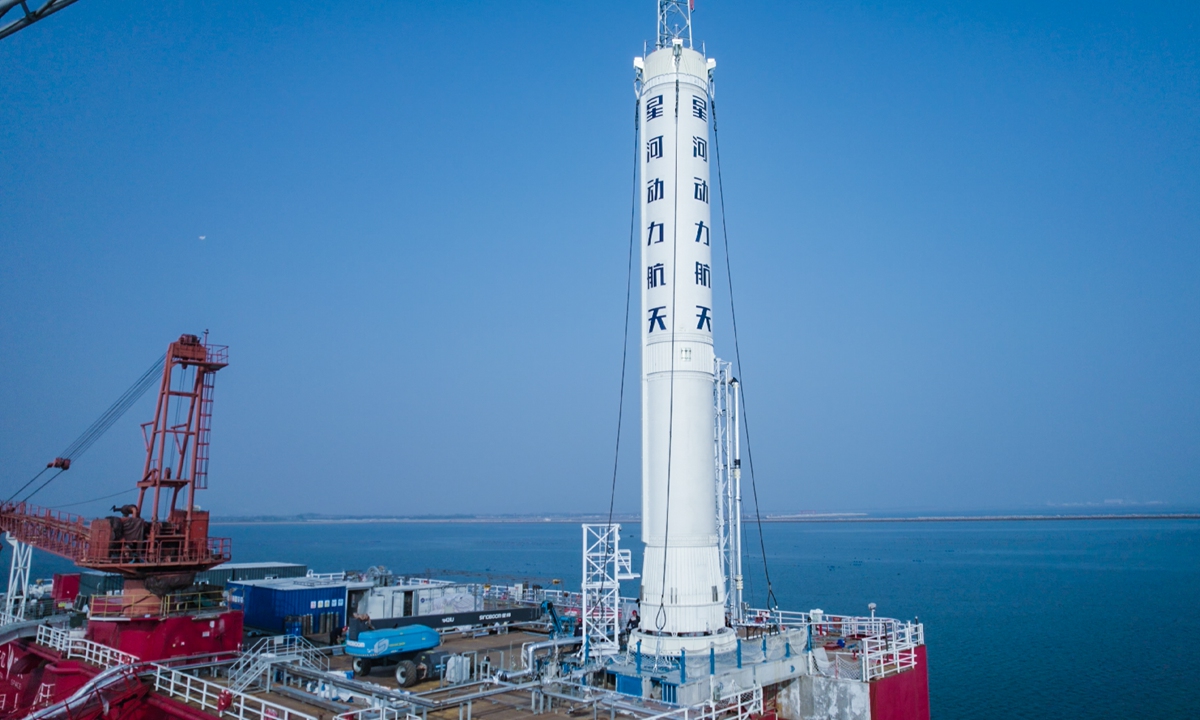
The PALLAS-1 rocket Photo: Courtesy of Galactic Energy
China's private aerospace company Galactic Energy announced on Tuesday that it successfully completed a static-fire test of the first-stage propulsion system for its reusable liquid launch vehicle PALLAS-1 at Haiyang Oriental Aerospace Port in East China's Shandong Province.
The test represents another milestone of the rocket's propulsion system, marking the completion of all major ground tests for the vehicle, paving the way for its maiden flight, said a company statement the firm shared with the Global Times.
PALLAS-1 is among China's first orbit-capable, reusable liquid-fueled rockets, designed for at least 25 re-uses. It is primarily targeted at launching large satellite constellations and heavy payloads. The rocket has a take-off mass of approximately 283 tons and a maximum low-Earth orbit payload capacity of 7 tons, with a first-stage design enabling vertical recovery and reuse, said the company.
The test verified multiple feasibilities including fueling, parking, operation procedure and collected key environmental and operational data. The PALLAS-1 maiden flight is scheduled to take place at Galactic Energy's self-built launch site in the Jiuquan Satellite Launch Center, Northwest China's Gansu Province, said the company.
The test follows a series of recent rocket trials conducted by Chinese commercial aerospace companies, preparing for future aerospace infrastructure construction.
The Zhuque-3 reusable rocket has successfully completed fueling rehearsal and static ignition test, marking an entry into the critical preparation phase for its maiden flight, the Global Times learned from the vehicle's developer LandSpace, a leading Chinese commercial space launch provider, on October 21. According to China Central Television, the rocket is expected to support China's large-scale constellation deployment.
On October 27, another Chinese private aerospace firm Space Pioneer has completed the separation test for 36 satellites via its TL-3 carrier rocket in Zhangjiagang, East China's Jiangsu Province, marking a key breakthrough in China's commercial aerospace sector, particularly in multi-satellite deployment and heavy-lift capabilities, the company told the Global Times.